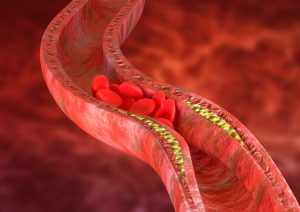What is Cholesterol?
Cholesterol is a fatty substance found in your blood that comes from two sources: your body and food.
Your body makes the required cholesterol it needs, but it can also be found in food from animal sources. Excess cholesterol can form plaque between layers of artery walls, making it harder for your heart to circulate blood, increasing you risk of heart disease and other cardiovascular diseases.
You may not feel any signs of having high cholesterol, it is therefore important to have your cholesterol check regularly.
Types of Cholesterol
There are several different types of cholesterol.
- High density lipoprotein (HDL) is often called ‘good’ cholesterol. It helps carry cholesterol away from the arteries and back to the liver, where it is processed.
- Low density lipoprotein (LDL) is known as ‘bad’ cholesterol. Too much may leave fatty deposits (plaque) on the lining of arteries, causing blockages and leading to cardiovascular disease.
Lowering your LDL can significantly decrease your risk of developing heart disease or a stroke.
What are normal cholesterol levels?
Cholesterol levels vary from person to person, but in general the lower the LDL and non-HDL, the better, and higher the HDL, the better. Your blood cholesterol is measured in mmol/L, which stands for millimoles per litre.
You should aim to have:
- total cholesterol 4mmol/L or less for those at high risk
- non HDL-cholesterol of 3mmol/L or less for those at high risk
- LDL-cholesterol of 2mmol/L or less for those at high risk
What causes high cholesterol?
There is no one single cause for high cholesterol. Many different factors can contribute to high cholesterol such as:
- eating a diet that is high in saturated fat
- smoking
- lack of physical activity
- high alcohol intake, or
- kidney or liver disease
- having an inherited condition known as hypercholesterolaemia
How can I lower my cholesterol levels?
Making healthy eating choices and increasing exercise are important first steps in improving your cholesterol. For some people, cholesterol-lowering medication may also be needed to reduce the risk for heart attack.
For some simple steps to be heart healthy click here.

